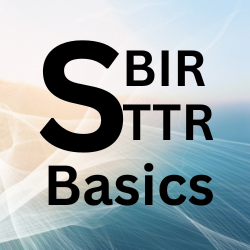What Founders and Small Businesses Need to Know
Compensation structures can be both a strategic decision and a compliance challenge for small businesses navigating the SBIR (Small Business Innovation Research) or STTR (Small Business Technology Transfer) funding process. The guaranteed payment agreement is one option that often enters the conversation, especially in founder-led or early-stage companies.
However, how do guaranteed payments align with federal funding requirements, particularly under SBIR and STTR programs? Can they be used as a basis for charging labor costs to an award? What documentation is required to remain compliant?
This article examines the role of guaranteed payments in the context of federally funded research projects, with a particular focus on the NIH and other granting agencies operating under the Uniform Guidance.
What Is a Guaranteed Payment Agreement?
A guaranteed payment agreement is a contractual arrangement in which a company commits to paying a specified amount of compensation, regardless of the company’s profitability or the availability of immediate cash flow. These are common in LLCs and partnerships, where owners or members receive guaranteed service payments, even if they don’t receive a traditional salary or distribution.
Guaranteed payments:
- Are typically fixed and outlined in an operating agreement or separate contract.
- May be used as an alternative to W-2 wages, especially in non-corporate structures.
- Can provide formal compensation for work performed by founders, executives, or key personnel.
Can SBIR or STTR Recipients Use Guaranteed Payments?
Yes, but with essential conditions.
The SBIR and STTR programs, designed to support innovation and entrepreneurship, require strict adherence to federal cost principles outlined in 2 CFR Part 200 (Uniform Guidance) and agency-specific policies, such as the NIH Grants Policy Statement.
To be allowable under an SBIR/STTR award, a guaranteed payment must:
- Be supported by a written agreement (e.g., operating agreement, employment contract, or board resolution)
- Reflect reasonable compensation for the work performed
- Be paid in cash or equivalent value, not just accrued on paper
- Be consistent with company compensation policies and past practices
- Be adequately documented through time and effort reporting
If your company fails to meet these conditions, auditors may deem the guaranteed payment unallowable and require you to repay the grant funds used to cover it.
Key Compliance Considerations for SBIR/STTR Guaranteed Payments
W-2 vs. Guaranteed Payments
SBIR/STTR programs generally expect personnel paid from federal awards to be W-2 employees. However, guaranteed payments can be an acceptable alternative if the company structure (e.g., LLC or partnership) doesn’t support traditional payroll or if founders are not yet on formal payroll.
That said, W-2 wages remain the gold standard for compensation documentation. Expect heightened scrutiny and prepare to justify your structure if you rely on guaranteed payments.
Timing and Actual Payment
You must actually pay the guaranteed payment following the agreement. Accruing the expense on paper but deferring or skipping the payment, especially if the person receives no other compensation, raises serious red flags during audits.
Only amounts actually paid during the award period are typically allowable.
Allocability to the Grant
If a founder is working 50% of their time on an SBIR project and the company owes a guaranteed payment of $100,000, the company may charge $50,000 to the award, but only if they:
- Document the $100,000 compensation in a formal agreement,
- The individual contributes the promised level of effort and
- The full amount is paid or scheduled for payment during the award period.
Effort Reporting
Guaranteed payments tied to SBIR/STTR-funded work require robust documentation of time and effort. You must show that the individual performed the work, contributed the effort charged, and the compensation aligns with the time invested.
Best Practices for Using Guaranteed Payments in Federally Funded Projects
To remain compliant and avoid audit findings:
- Document Guaranteed Payment Agreements in Writing
Include clear terms, payment amounts, timing, and responsibilities. - Ensure Reasonableness
Benchmark compensation against industry standards and internal pay scales. - Track and Pay On Time
Make guaranteed payments on the schedule outlined; don’t defer without formal modification and documentation. - Separate Equity Distributions from Compensation
Compensation is limited to actual services performed, not profit-sharing or equity-based payments. - Consult Legal and Accounting Advisors
Especially if your business is an LLC or a partnership, seek guidance to ensure your agreements align with SBIR/STTR requirements.
Final Thoughts: Use Guaranteed Payments Carefully and Transparently
Guaranteed payment agreements can be beneficial for early-stage companies participating in SBIR or STTR programs, particularly when conventional payroll arrangements are not feasible. However, companies must structure these payments carefully to ensure they qualify as allowable, reasonable, and allocable costs under federal funding rules.
By documenting compensation agreements, ensuring timely payments, and maintaining detailed time records, your business can use guaranteed payments compliantly and confidently without jeopardizing your award.
Need help structuring compensation for your SBIR or STTR team? Contact an experienced grant compliance advisor or attorney who understands the SBIR or STTR program.


